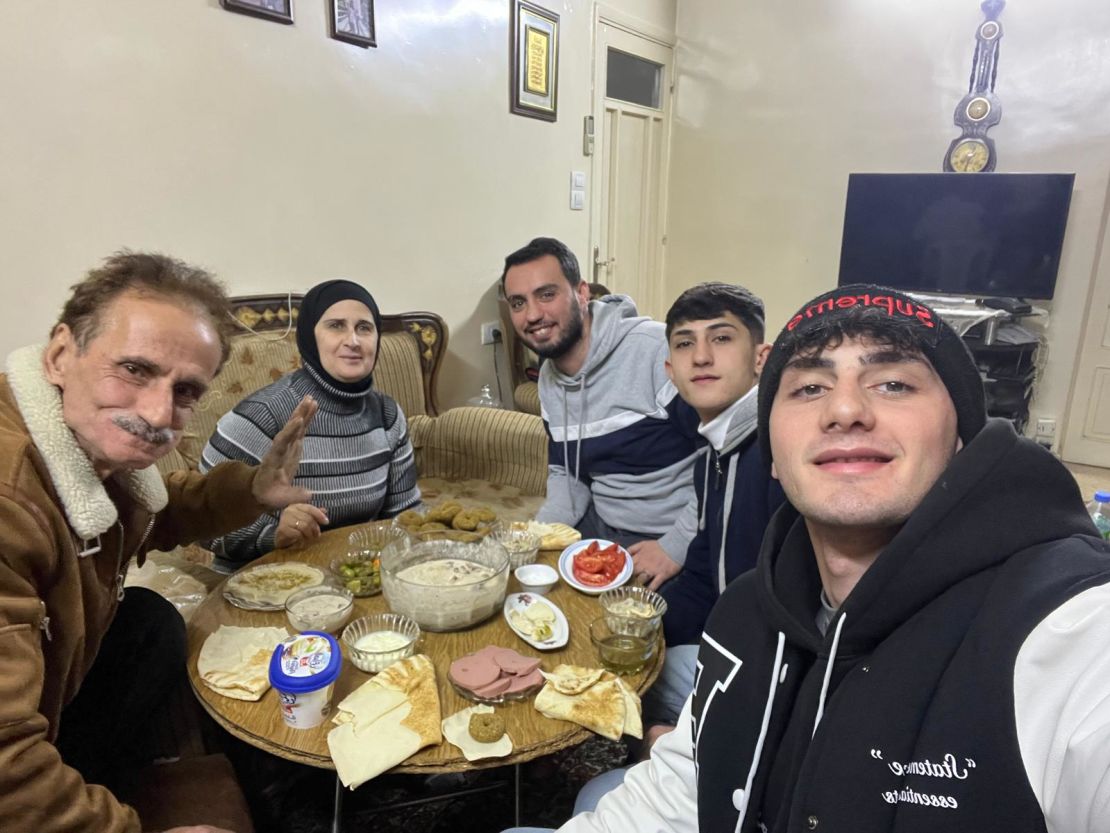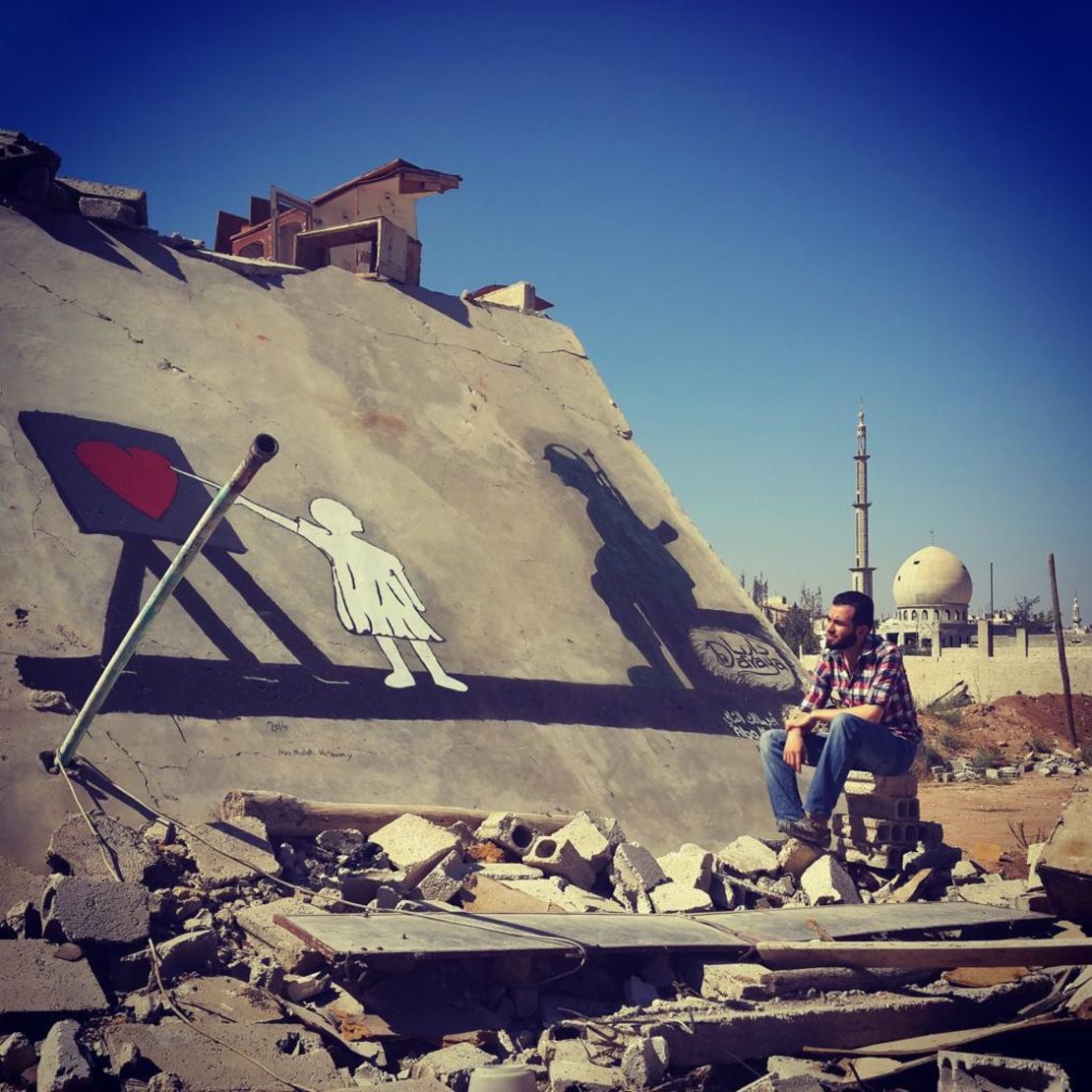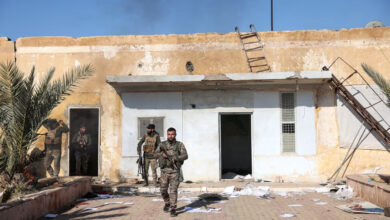
Morjan immediately dropped to his knees too and cried “Oh God!” in gratitude for a reunion he believed might never happen.
For a moment, the two remained prostrated before finally embracing and weeping with joy.
The poignant moment, shared on social media, is one of countless homecomings seen across Syria in the wake of its sudden liberation from the Assad dynasty’s rule. A trickle of those forced out of the country by the conflict are returning to what remains of the lives they lived before they fled.
Syria’s 13-year civil war forced 6 million people to become refugees and saw 7 million become internally displaced, according to the United Nations.
Of those who fled the country, one million are expected to return in the first six months of 2025, the UN’s refugee agency said Tuesday, as it appealed for donors to help support their humanitarian needs.
Many have longed to return for years, but in the immediate aftermath of a sudden rebel takeover, not all are keen to hurry back to an unstable country with an uncertain future.
‘It was pure joy’
When the uprising against Assad began in the spring of 2011, Morjan, then an 18-year-old high school student, picked up a camera and started filming the massive demonstrations that rocked his city, Aleppo.
He soon became known to government security forces and the city’s feared intelligence units, which forced him into hiding, he told CNN in an interview this week from Gaziantep, southern Turkey.
In 2012, Aleppo was split in two – Free Syrian Army rebels wrested control of the eastern portion of the city, while the rest, including Morjan’s neighborhood, remained under government control.
Morjan, hunted and afraid, said he decided to cross battle lines and flee into opposition territory, leaving his family behind.
He threw himself into his work at an activist-run media network, while Syrian troops encircled and besieged the enclave, eventually cutting it off from food, water, medicine, and basic supplies. Barrel bombs, crudely made explosive devices packed into oil barrels and dropped from helicopters, pummeled the quarter of million people trapped in the hellscape.
The international community condemned what it called the “kneel or starve campaign” but, ultimately, Assad got his surrender.
In December 2016, rebel forces and civilians withdrew from the city under an evacuation agreement, and government forces re-established control.
“We are leaving with our dignity,” Morjan said in a video he filmed of the exodus and posted online at the time. “We are leaving with our heads held high, and we will return one day.”

Morjan made his way to Turkey, home to more than 3.2 million Syrian refugees, where he started a family, found a job, and built a life. But Syria was never far from his mind.
On the night that rebels took control of Aleppo this month, on their march to reach the capital and ultimately overthrow Assad, Morjan called his mother and vowed he would return now that his city was “liberated.”
“I cannot describe the feeling of returning home after 13 years of exile,” Morjan said.
“When I finally reached the front door, my legs would no longer carry me. We were so happy and overwhelmed that my mom and I both kneeled and prayed. It was pure joy.”
But despite this happiness his return was fraught, he said, with the knowledge that ex-government forces and shadowy former intelligence officers lurked in the city’s streets. Morjan enjoyed a home-cooked meal, laughed, and chatted with loved ones all evening, then left again first thing in the morning.
Now he is back in Gaziantep, preparing to move permanently back to Aleppo with his wife, who’s also from Syria, and their two young daughters, both born in Turkey, in the next few months.
He knows it will be dangerous and difficult to eke out a living in a country where 90% of the population lives below the poverty line, according to the UN, but he said it’s worth it.
“I am optimistic about the future, and I have huge hope that the country will be better than before,” Morjan said. “All our efforts, all the blood that was shed for the revolution, will be the seeds that sow a new Syria.”

Revenge killing fears
Hussam Kassas pleaded with his Bedouin smugglers to let him die in the desert. It was a 13-hour walk out of Syria and across the Jordanian border to safety, back in early 2016, but he couldn’t take another step.
Only two months prior, he had undergone surgery to remove shrapnel from his knees, the lingering aftermath of a barrel bomb blast that had torn through his legs.
“I told them, ‘just leave me on the ground, I don’t want to carry on, let the regime find me and kill me,’” he told CNN in an interview this week from Manchester, northern England. “But those two people (the smugglers) encouraged me, and even carried me some of the way.”
The human rights activist made it to Jordan and, years later, the United Kingdom granted him and his wife student visas. The young family arrived in Manchester in August 2023, and quickly applied for asylum. Kassas could finally imagine a safe and stable future, but his relief was short-lived.
His application, along with that of tens of thousands of other asylum-seekers across Europe, is now suspended.
The governments of the UK, Austria, Germany, Greece and Sweden and others have announced a pause in the processing of all Syrian asylum requests to allow authorities to reassess the situation on the ground now that the threat of Assad is gone.

But new risks are emerging. The United States, UN, and several countries consider the main group now governing Syria, Hayat-Tahrir al-Sham, or HTS, a designated terrorist organization. In the wake of the rebels’ lightning advance on the capital, more than a million people fled their homes; most are now internally displaced, according to the UN refugee agency, UNHCR.
UNHCR has said the suspensions are acceptable, as long as no asylum-seekers are forcibly returned to Syria and that they continue to enjoy protections wherever they reside.
“We want these returns to be voluntary. We want these returns to be sustainable, and we want to be able to help people return to a place where they can stay,” William Spindler, a UNHCR spokesperson, told CNN.
Kassas says he fears retribution if he returns to Syria.
He worked as a paramedic and human rights defender in his home province of Daraya, a Damascus suburb, during the civil war. His job was to document potential war crime violations by any party to the conflict – rebel, government or otherwise – and report the cases to international agencies, a role he says puts him at particular risk.
“I do not want my family, my sons, to become the victims of a revenge killing,” Kassas said. “Just because the Syrian president fled the country, that doesn’t mean his soldiers and secret service officers suddenly become peaceful angels.”
He welcomed a second son, born in England, two weeks before his dream of a Syria free of Assad came true.
But that dream has turned into a nightmare for his family. Both his right to work and right to rent permits are set to expire next month, and he worries he could lose his job and his apartment in Manchester if they are not renewed, with his asylum application on hold. He feels under threat, again.
“I chose to take the risk of being a human rights defender and an activist, and I was willing to sacrifice myself to build a better country,” Kassas said. “But I will not let my wife and kids pay for the decisions that I made.”




